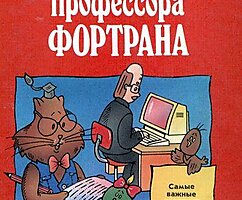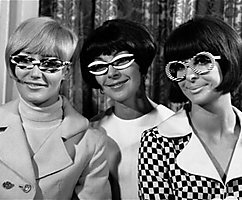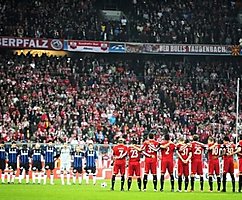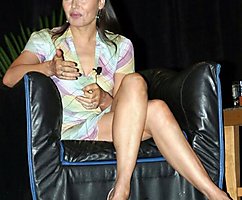Library of liberty: the liberal society in ten books
 Bashny.Net
Bashny.Net
InLiberty and Bookmate open a joint project — a constantly updated collection of key texts on freedom, written over the last few centuries. Through the classic works of philosophers, rebels, economists, scientists and poets, readers will be able to learn about major ideas that lie at the basis of a free society: the concept of the invisible hand of the market and axioms of negresse to the philosophical foundations of ethics.
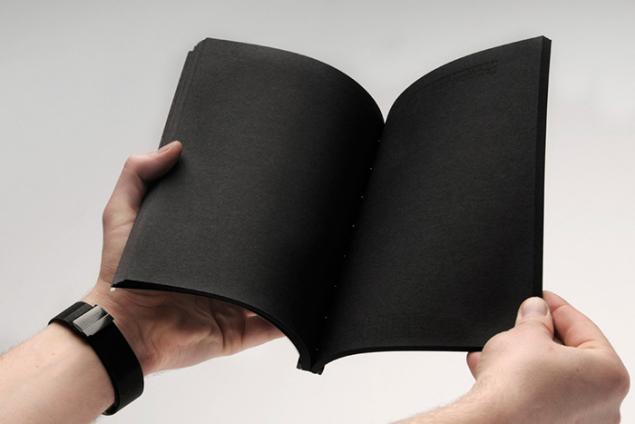
"The natural state" of liberty, the duty of civil disobedience, and the loss of discrimination — especially for T&P Stanislav Lvovsky wrote about the first ten published books.
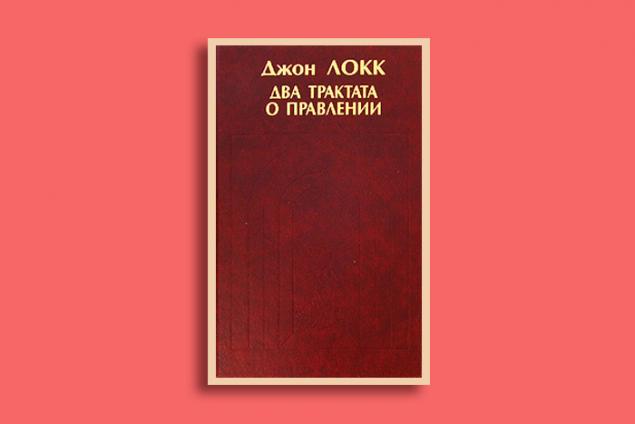
The book John Locke — philosopher and political theorist — was first published anonymously in 1689, but for more than three centuries has not lost its relevance. In the historical sense, the treatise is a theoretical justification of the results of the "Glorious revolution", which was adopted by the "bill of rights" of 1689, which recognized in England a limited constitutional monarchy. In his book Locke formulates the principle of separation of powers, develops the theory of civil society, and argues with "Leviathan" — a powerful essay of another political theorist Thomas Hobbes. Locke believes that "the natural state" is not a war of all against all as Hobbes, but a state of peace, goodwill, equality, and freedom to dispose of his property and life. In addition, according to Locke, the legitimacy of the government born out of the social contract — hence, citizens have the right to overthrow the government which came to power against their will.
Quote:
"Where law ends, tyranny begins, if the law prestupnitsa the detriment of another. And if someone in power exceeds given to him by law, and uses the power at its disposal the power to take such action in relation to the subject which are not permitted by the law, then he ceases to be an officer, and since he acts in this way without proper authority, then it is possible to resist, like any other person, which is the power to infringe upon the rights of another."
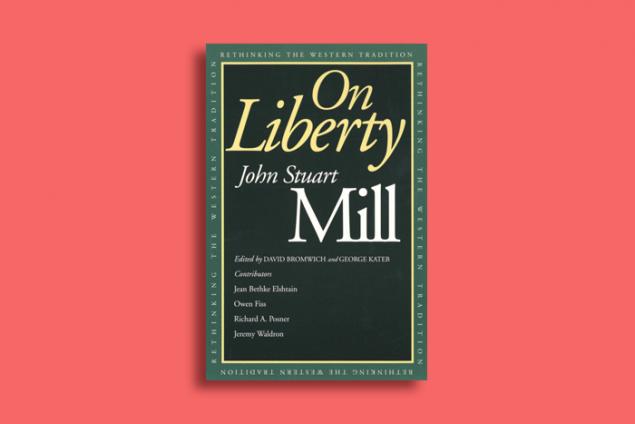
One of the most famous and influential works of John Stuart mill, British political philosopher and economist, was first published in 1859. In it, Millie tries to determine the proper disposition of freedom and power, to protect individuality and to warn against the dangers of democratic "tyranny of the majority" which, in his opinion, worse than the tyranny of the government. He formulates the three most important personal freedom: the freedom to think and to feel and publicly Express their thoughts; the freedom to live in accordance with their inclinations, as long as it does not harm others, even if society considers these tendencies immoral; and, finally, the freedom to unite with others in the Association. Mill believes that if you leave people alone and give them the opportunity to peacefully pursue their own interests, all will be well, not only them, the whole society will be happier.
Quote:
"It's not enough to have the protection only from government tyranny, but need to have protection from the tyranny of the dominant in society, the opinions or feelings, — from the peculiar society of gravitation, though and not criminal measures to forcibly impose their ideas and their rules to those individuals who differ with him in his notions, his inclinations not only to cease all development of such individuals, which are not in harmony with the prevailing direction, but, if possible, prevent their education and generally smooth out all the individual characteristics, forcing individuals to conform their characters and known samples. There is a border further which the public opinion can not legally intervene in individual independence; it is necessary to establish this boundary, need to guard against faults is also required, as a necessary protection against political despotism."
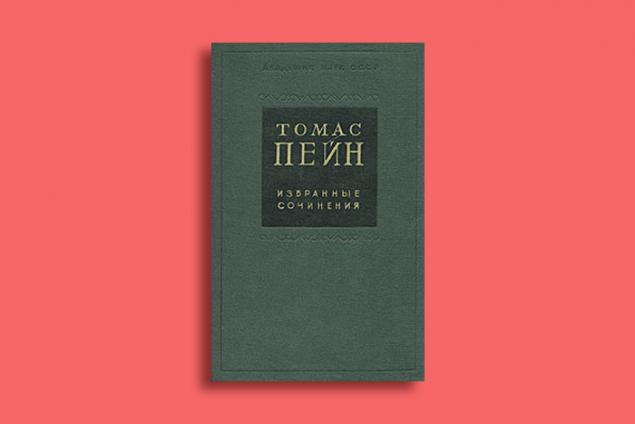
This was published in a 1791 treatise writer and philosopher Thomas Paine was in England sentenced to be hanged as the instigator of the rebellion, as in France, elected Deputy of the National Convention from the district of Pas-de-Calais, despite not knowing the language. The text is a polemical response to "reflections on the revolution in France" Edmund Burke. Paine argues that human rights are "natural" and therefore cannot be given to the Constitution: this would mean that they can be a legitimate way to select, which in turn, turned them into privileges. Developing the ideas of Locke, Paine argues that the task of the government is security of person and protection of the inalienable rights belonging thereto. Any government acting not for the benefit of the people, is illegitimate, and the hereditary transfer of power is not conducive to the best governance.
Quote:
"When any country in the world can say of himself: "My poor are happy, free from misery and ignorance; in my prison no more prisoners, and on the streets — the poor, the elderly don't need; the taxes are not burdensome; peace of mind — on my side, because I'm on the side of happiness" — so, when all these words will be the truth, then this country can openly be proud of their Constitution and their government. My happiness — the independence, my Fatherland — the whole world, and my religion is to do good."
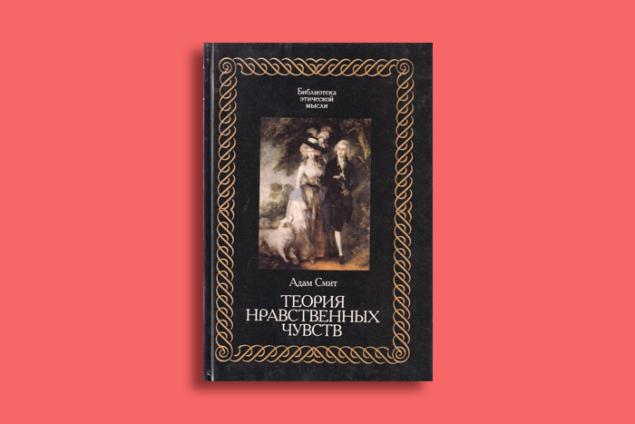
All used to think of Smith as an economist, that is quite true. However, in this early (written in 17 years to "Research about the nature and causes of the wealth of Nations") he acts as a moral philosopher. Smith refuses the submission of the sixth "moral" feeling and instead sees morality as a result of the interaction of many different motives. The basis of morality, he believes the human capacity for empathy. This text clearly indicates that, contrary to popular belief, Smith was never an apologist for selfish principles.
Quote:
"Whatever the degree of selfishness we may assume in man, the nature of his obviously peculiar part to what happens with other part due to which their happiness necessary to him, even if it was only the pleasure to be his witness."
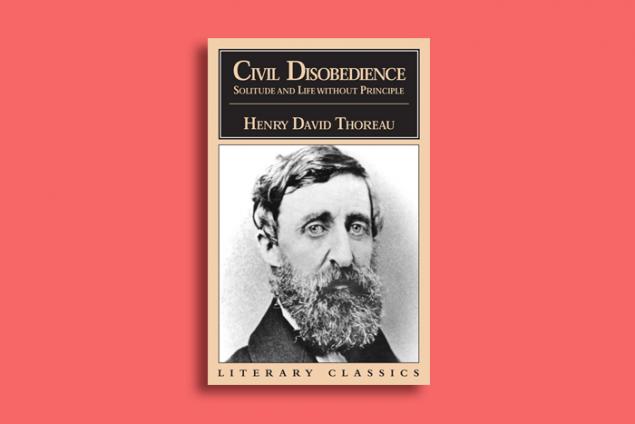
In this essay of 1849 American poet, novelist, philosopher and naturalist Henry David Thoreau thoroughly expresses and justifies its aversion to the state government. Formally, he calls not for a rejection of these institutions, and to improve them, but the ideal still is formulated anarchist: "the Best government is that which governs not at all".
Thoreau says that the government generally does more harm than good, and democracy here is not particularly helpful, since the majority is not wiser and more just simply because of its numerical advantages. Corruption and injustice are not accompanied by "basically useful" activities of the government — on the contrary, the government is the main agent of corruption and injustice.
Thoreau disagrees with the basic provisions of modern political philosophy, who took the revolution for the source of enormous trouble. In his opinion, accounts of this kind is unacceptable, if the government allows to exist such a terrible thing as slavery. If the political process does not allow to change unjust laws fast enough, civic and human duty is to immediately stop such laws to obey. From the point of view of the American philosopher, the autonomy of moral judgment is most important, and should strongly resist the temptation to follow the government — or a majority — in matters of justice and virtue.
Quote:
"If the injustice is part of the necessary friction of the machine of government, let it; it is clear that the machine will smachivaetsya. If the injustice becomes all the mechanism operating only for yourself, you are likely to think: wouldn't the cure worse than the disease, and if this mechanism also requires that you commit injustice against others, then I will advise you to break it. Let your life will be something that will stop a machine like this. Anyway, I have to watch so as not to serve the evil which I condemn."

French liberal economist frédéric Bastiat was a contemporary and, in a sense, the antagonist of Marx. A staunch supporter of laissez-faire (non-interference), Bastiat believed that the interests of the capitalists and workers are not so different and I at least agree that for the beneficence of free trade and limiting government intervention. The 1850 pamphlet "What is seen and what is not seen" in a veiled form, cited in "the Fifth element" by Luc Besson: in the scene when the main antagonist Zorg breaks a glass, illustrating their thoughts about the usefulness of destruction. However, instead of a glass of Bastiat appears a window broken "obnoxious son of a" respectable Baker.
Quote:
"In our time, as before, each to a greater or lesser extent want to use works middle. No one clearly allows himself to Express this feeling, and just hides it even from himself. But how come then? Invent an intermediary and turn to the State to which every class of society in turn says: "You, who are legitimately and honestly can take, take society, and we'll split it". Alas, the State is always too apt to follow such infernal Council [...]. The government quickly understands what benefits it can draw from assigned to him by the society role. It will be a gentleman, administrator of all and each; it will be a lot to take, but to him and many will remain: it will multiply the number of its agents, will expand the scope of their rights and benefits, and it will end because it will grow to overwhelming dimensions."
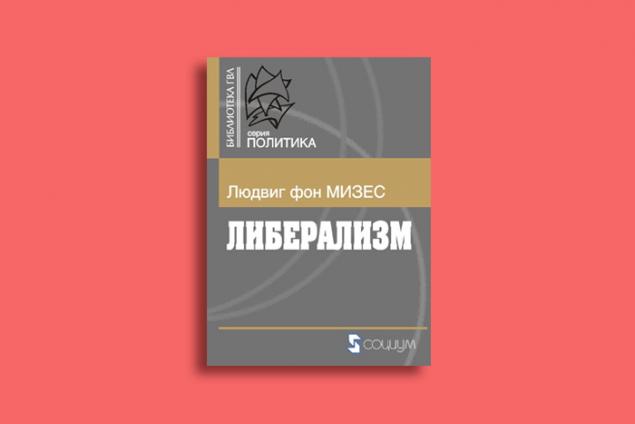
A small book written by Austrian school economist and philosopher of the libertarian Ludwig von Mises, is the sacred Scripture of classical liberalism. For several decades since its first publication before the release of the English translation, came world war II and the flourishing of two of the most brutal repressive regimes of the twentieth century — Nazi Germany and the Stalinist Soviet Union.
In the Preface to the English translation, published in 1967, Mises wrote: "Thirty-five years ago, I tried to give a brief overview of the ideas and principles of social philosophy, once known under the name of liberalism. I entertained the vain hope that my opinion will prevent imminent disaster, which obviously led policy adopted by the peoples of Europe. The only thing I wanted to achieve is to provide the opportunity for a small number of thinking people to know about the aims of classical liberalism and its achievements and thus to prepare the way for the resurrection of the spirit of freedom after the impending collapse." Today it is obvious that this program was more than exceeded. In five chapters, Mises explains the General framework of liberal politics and Economics, and in the last part, describes his vision for the future of the doctrine, an adherent of which he remained until the end of life.
Quote:
"The propensity of our contemporaries to demand the government ban, as soon as they doesn't like something, and their willingness to submit to such prohibitions even when what is prohibited, it is acceptable to them shows how deeply ingrained the spirit of servility. It will take many years of education to citizen become a citizen. A free man must be able to accept the fact that his fellow citizens are and do not live as he thinks is right. He should get rid of the habit to call the police as soon as he doesn't like something".

The winner of the Nobel prize in Economics, the beloved disciple of Mises and the Austrian school, von Hayek wrote "the Road to serfdom" at the end of the Second world war as a warning against repeating the mistakes of the thirties of the XX century. In the ideological sense, the book is directed mainly against the Communist and national socialist ideologies. Hayek argues that by these and other collectivist ideologies political and economic systems, determining the priority of a purpose, thus, determine the trajectory of the development of the whole system: from utopia to planning in its interests, from the control distribution to the infinite extension of the powers of the state. Hayek devotes a lot of time discussing why such regimes always lead to the worst, even if their origins are idealists and adherents of the idea of the public good.
Quote:
"Our generation is in danger of forgetting not only the fact that moral principles are inextricably linked to individual behaviour, but also that they can act only if the individual is free, able to make independent decisions and for the application of these principles to voluntarily sacrifice personal benefit. Outside the sphere of personal responsibility there is neither good nor evil, no virtue, no sacrifice. Only where we are responsible for our actions, where our victim was free and voluntary, the decisions we make can be considered moral. As impossible altruism for others, as it is not possible and the lack of freedom of choice."
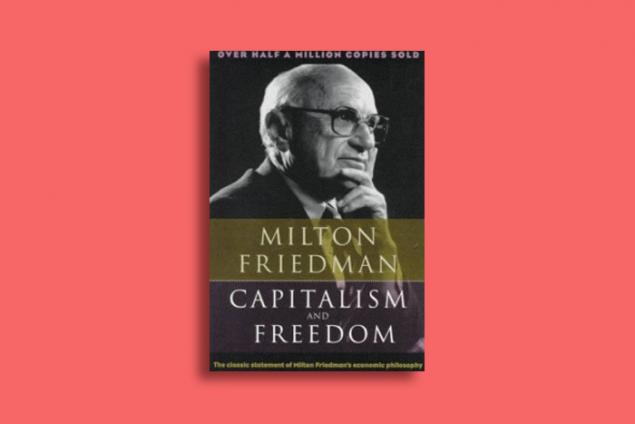
The book of Nobel prize winner came out in 1962 and was translated into eighteen languages. Its main position is that political freedom is based on economic freedoms. While the means of production are in state hands, there will be no free exchange of ideas in the public sphere, nor the opposition of institutions. The government in a free society should, according to Friedman, engage in law enforcement, protect property rights, regulate the few monopolies that has a technical nature, and control monetary emission. Friedman explains why attempts by the state to spend money to stabilize the economy, it is, in fact, rocking; and is in favour of private education and the arguments in favor of the fact that in a truly economically free society, the discrimination will disappear because causes damage.
Quote:
"Defending freedom from encroachment is, so to speak, is the protective reason for limiting and decentralizing government power. But there is a constructive reason. The greatest achievement of civilization in any field of art or architecture, science or literature, industry or agriculture — will never stem from the Central government. Columbus went looking for a new way to China by the decree of the parliamentary majority, although it is partly financed by an absolute monarch. Newton and Leibniz, Einstein and Bohr, Shakespeare, Milton and Pasternak, Whitney, McCormick, Edison and Ford, Jane Adams, Florence Nightingale and albert Schweitzer — all of them opened new frontiers in human knowledge, in literature, in technology or in the alleviation of human suffering not by decree of government. Their accomplishments were a product of their own genius, strong convictions of the minority and community atmosphere, giving play to the diversity and originality".
John Dalberg-Acton - "Essays on the formation of liberty" 1907

Although the name Dalberg-Acton is not as well known as the names of other authors in the list, it won its place in the collective memory, formulating the famous aphorism: "Power corrupts, absolute power corrupts absolutely". The author of "Sketches of the formation of liberty" — a historian and partly the politician. His political activities were very limited: as a member of the British Parliament, Dahlberg-Acton how could skimped on its meetings. The book is a collection of essays and lectures on a variety of topics: freedom in antiquity and in the Christian era, the nation-state, the origin of the state as an institution and historiographical theory.
Quote:
"The growing prevalence of unselfish urges generosity towards the weak in public life is accompanied by a corresponding increase in the respect for minorities in the political life, which is the very essence of freedom." published
P. S. And remember, just changing your mind — together we change the world! ©
Source: theoryandpractice.ru

"The natural state" of liberty, the duty of civil disobedience, and the loss of discrimination — especially for T&P Stanislav Lvovsky wrote about the first ten published books.

The book John Locke — philosopher and political theorist — was first published anonymously in 1689, but for more than three centuries has not lost its relevance. In the historical sense, the treatise is a theoretical justification of the results of the "Glorious revolution", which was adopted by the "bill of rights" of 1689, which recognized in England a limited constitutional monarchy. In his book Locke formulates the principle of separation of powers, develops the theory of civil society, and argues with "Leviathan" — a powerful essay of another political theorist Thomas Hobbes. Locke believes that "the natural state" is not a war of all against all as Hobbes, but a state of peace, goodwill, equality, and freedom to dispose of his property and life. In addition, according to Locke, the legitimacy of the government born out of the social contract — hence, citizens have the right to overthrow the government which came to power against their will.
Quote:
"Where law ends, tyranny begins, if the law prestupnitsa the detriment of another. And if someone in power exceeds given to him by law, and uses the power at its disposal the power to take such action in relation to the subject which are not permitted by the law, then he ceases to be an officer, and since he acts in this way without proper authority, then it is possible to resist, like any other person, which is the power to infringe upon the rights of another."

One of the most famous and influential works of John Stuart mill, British political philosopher and economist, was first published in 1859. In it, Millie tries to determine the proper disposition of freedom and power, to protect individuality and to warn against the dangers of democratic "tyranny of the majority" which, in his opinion, worse than the tyranny of the government. He formulates the three most important personal freedom: the freedom to think and to feel and publicly Express their thoughts; the freedom to live in accordance with their inclinations, as long as it does not harm others, even if society considers these tendencies immoral; and, finally, the freedom to unite with others in the Association. Mill believes that if you leave people alone and give them the opportunity to peacefully pursue their own interests, all will be well, not only them, the whole society will be happier.
Quote:
"It's not enough to have the protection only from government tyranny, but need to have protection from the tyranny of the dominant in society, the opinions or feelings, — from the peculiar society of gravitation, though and not criminal measures to forcibly impose their ideas and their rules to those individuals who differ with him in his notions, his inclinations not only to cease all development of such individuals, which are not in harmony with the prevailing direction, but, if possible, prevent their education and generally smooth out all the individual characteristics, forcing individuals to conform their characters and known samples. There is a border further which the public opinion can not legally intervene in individual independence; it is necessary to establish this boundary, need to guard against faults is also required, as a necessary protection against political despotism."

This was published in a 1791 treatise writer and philosopher Thomas Paine was in England sentenced to be hanged as the instigator of the rebellion, as in France, elected Deputy of the National Convention from the district of Pas-de-Calais, despite not knowing the language. The text is a polemical response to "reflections on the revolution in France" Edmund Burke. Paine argues that human rights are "natural" and therefore cannot be given to the Constitution: this would mean that they can be a legitimate way to select, which in turn, turned them into privileges. Developing the ideas of Locke, Paine argues that the task of the government is security of person and protection of the inalienable rights belonging thereto. Any government acting not for the benefit of the people, is illegitimate, and the hereditary transfer of power is not conducive to the best governance.
Quote:
"When any country in the world can say of himself: "My poor are happy, free from misery and ignorance; in my prison no more prisoners, and on the streets — the poor, the elderly don't need; the taxes are not burdensome; peace of mind — on my side, because I'm on the side of happiness" — so, when all these words will be the truth, then this country can openly be proud of their Constitution and their government. My happiness — the independence, my Fatherland — the whole world, and my religion is to do good."

All used to think of Smith as an economist, that is quite true. However, in this early (written in 17 years to "Research about the nature and causes of the wealth of Nations") he acts as a moral philosopher. Smith refuses the submission of the sixth "moral" feeling and instead sees morality as a result of the interaction of many different motives. The basis of morality, he believes the human capacity for empathy. This text clearly indicates that, contrary to popular belief, Smith was never an apologist for selfish principles.
Quote:
"Whatever the degree of selfishness we may assume in man, the nature of his obviously peculiar part to what happens with other part due to which their happiness necessary to him, even if it was only the pleasure to be his witness."

In this essay of 1849 American poet, novelist, philosopher and naturalist Henry David Thoreau thoroughly expresses and justifies its aversion to the state government. Formally, he calls not for a rejection of these institutions, and to improve them, but the ideal still is formulated anarchist: "the Best government is that which governs not at all".
Thoreau says that the government generally does more harm than good, and democracy here is not particularly helpful, since the majority is not wiser and more just simply because of its numerical advantages. Corruption and injustice are not accompanied by "basically useful" activities of the government — on the contrary, the government is the main agent of corruption and injustice.
Thoreau disagrees with the basic provisions of modern political philosophy, who took the revolution for the source of enormous trouble. In his opinion, accounts of this kind is unacceptable, if the government allows to exist such a terrible thing as slavery. If the political process does not allow to change unjust laws fast enough, civic and human duty is to immediately stop such laws to obey. From the point of view of the American philosopher, the autonomy of moral judgment is most important, and should strongly resist the temptation to follow the government — or a majority — in matters of justice and virtue.
Quote:
"If the injustice is part of the necessary friction of the machine of government, let it; it is clear that the machine will smachivaetsya. If the injustice becomes all the mechanism operating only for yourself, you are likely to think: wouldn't the cure worse than the disease, and if this mechanism also requires that you commit injustice against others, then I will advise you to break it. Let your life will be something that will stop a machine like this. Anyway, I have to watch so as not to serve the evil which I condemn."

French liberal economist frédéric Bastiat was a contemporary and, in a sense, the antagonist of Marx. A staunch supporter of laissez-faire (non-interference), Bastiat believed that the interests of the capitalists and workers are not so different and I at least agree that for the beneficence of free trade and limiting government intervention. The 1850 pamphlet "What is seen and what is not seen" in a veiled form, cited in "the Fifth element" by Luc Besson: in the scene when the main antagonist Zorg breaks a glass, illustrating their thoughts about the usefulness of destruction. However, instead of a glass of Bastiat appears a window broken "obnoxious son of a" respectable Baker.
Quote:
"In our time, as before, each to a greater or lesser extent want to use works middle. No one clearly allows himself to Express this feeling, and just hides it even from himself. But how come then? Invent an intermediary and turn to the State to which every class of society in turn says: "You, who are legitimately and honestly can take, take society, and we'll split it". Alas, the State is always too apt to follow such infernal Council [...]. The government quickly understands what benefits it can draw from assigned to him by the society role. It will be a gentleman, administrator of all and each; it will be a lot to take, but to him and many will remain: it will multiply the number of its agents, will expand the scope of their rights and benefits, and it will end because it will grow to overwhelming dimensions."

A small book written by Austrian school economist and philosopher of the libertarian Ludwig von Mises, is the sacred Scripture of classical liberalism. For several decades since its first publication before the release of the English translation, came world war II and the flourishing of two of the most brutal repressive regimes of the twentieth century — Nazi Germany and the Stalinist Soviet Union.
In the Preface to the English translation, published in 1967, Mises wrote: "Thirty-five years ago, I tried to give a brief overview of the ideas and principles of social philosophy, once known under the name of liberalism. I entertained the vain hope that my opinion will prevent imminent disaster, which obviously led policy adopted by the peoples of Europe. The only thing I wanted to achieve is to provide the opportunity for a small number of thinking people to know about the aims of classical liberalism and its achievements and thus to prepare the way for the resurrection of the spirit of freedom after the impending collapse." Today it is obvious that this program was more than exceeded. In five chapters, Mises explains the General framework of liberal politics and Economics, and in the last part, describes his vision for the future of the doctrine, an adherent of which he remained until the end of life.
Quote:
"The propensity of our contemporaries to demand the government ban, as soon as they doesn't like something, and their willingness to submit to such prohibitions even when what is prohibited, it is acceptable to them shows how deeply ingrained the spirit of servility. It will take many years of education to citizen become a citizen. A free man must be able to accept the fact that his fellow citizens are and do not live as he thinks is right. He should get rid of the habit to call the police as soon as he doesn't like something".

The winner of the Nobel prize in Economics, the beloved disciple of Mises and the Austrian school, von Hayek wrote "the Road to serfdom" at the end of the Second world war as a warning against repeating the mistakes of the thirties of the XX century. In the ideological sense, the book is directed mainly against the Communist and national socialist ideologies. Hayek argues that by these and other collectivist ideologies political and economic systems, determining the priority of a purpose, thus, determine the trajectory of the development of the whole system: from utopia to planning in its interests, from the control distribution to the infinite extension of the powers of the state. Hayek devotes a lot of time discussing why such regimes always lead to the worst, even if their origins are idealists and adherents of the idea of the public good.
Quote:
"Our generation is in danger of forgetting not only the fact that moral principles are inextricably linked to individual behaviour, but also that they can act only if the individual is free, able to make independent decisions and for the application of these principles to voluntarily sacrifice personal benefit. Outside the sphere of personal responsibility there is neither good nor evil, no virtue, no sacrifice. Only where we are responsible for our actions, where our victim was free and voluntary, the decisions we make can be considered moral. As impossible altruism for others, as it is not possible and the lack of freedom of choice."

The book of Nobel prize winner came out in 1962 and was translated into eighteen languages. Its main position is that political freedom is based on economic freedoms. While the means of production are in state hands, there will be no free exchange of ideas in the public sphere, nor the opposition of institutions. The government in a free society should, according to Friedman, engage in law enforcement, protect property rights, regulate the few monopolies that has a technical nature, and control monetary emission. Friedman explains why attempts by the state to spend money to stabilize the economy, it is, in fact, rocking; and is in favour of private education and the arguments in favor of the fact that in a truly economically free society, the discrimination will disappear because causes damage.
Quote:
"Defending freedom from encroachment is, so to speak, is the protective reason for limiting and decentralizing government power. But there is a constructive reason. The greatest achievement of civilization in any field of art or architecture, science or literature, industry or agriculture — will never stem from the Central government. Columbus went looking for a new way to China by the decree of the parliamentary majority, although it is partly financed by an absolute monarch. Newton and Leibniz, Einstein and Bohr, Shakespeare, Milton and Pasternak, Whitney, McCormick, Edison and Ford, Jane Adams, Florence Nightingale and albert Schweitzer — all of them opened new frontiers in human knowledge, in literature, in technology or in the alleviation of human suffering not by decree of government. Their accomplishments were a product of their own genius, strong convictions of the minority and community atmosphere, giving play to the diversity and originality".
John Dalberg-Acton - "Essays on the formation of liberty" 1907

Although the name Dalberg-Acton is not as well known as the names of other authors in the list, it won its place in the collective memory, formulating the famous aphorism: "Power corrupts, absolute power corrupts absolutely". The author of "Sketches of the formation of liberty" — a historian and partly the politician. His political activities were very limited: as a member of the British Parliament, Dahlberg-Acton how could skimped on its meetings. The book is a collection of essays and lectures on a variety of topics: freedom in antiquity and in the Christian era, the nation-state, the origin of the state as an institution and historiographical theory.
Quote:
"The growing prevalence of unselfish urges generosity towards the weak in public life is accompanied by a corresponding increase in the respect for minorities in the political life, which is the very essence of freedom." published
P. S. And remember, just changing your mind — together we change the world! ©
Source: theoryandpractice.ru
Tags
See also
5 tips how to invest in her husband with a maximum profitability
5 tips how to invest in her husband with a maximum profitability
About the baby and sex
Ilya budraitskis : Today only the rich moral revived at the expense of others
The world's first library without books
The Aim
The fire damaged 15% of the funds INION Scientific Library in Moscow. Digitization of books about money not allocated
"Everything that was said about Christianity, neopagans, is a lie,"
The most influential books of the twentieth century




